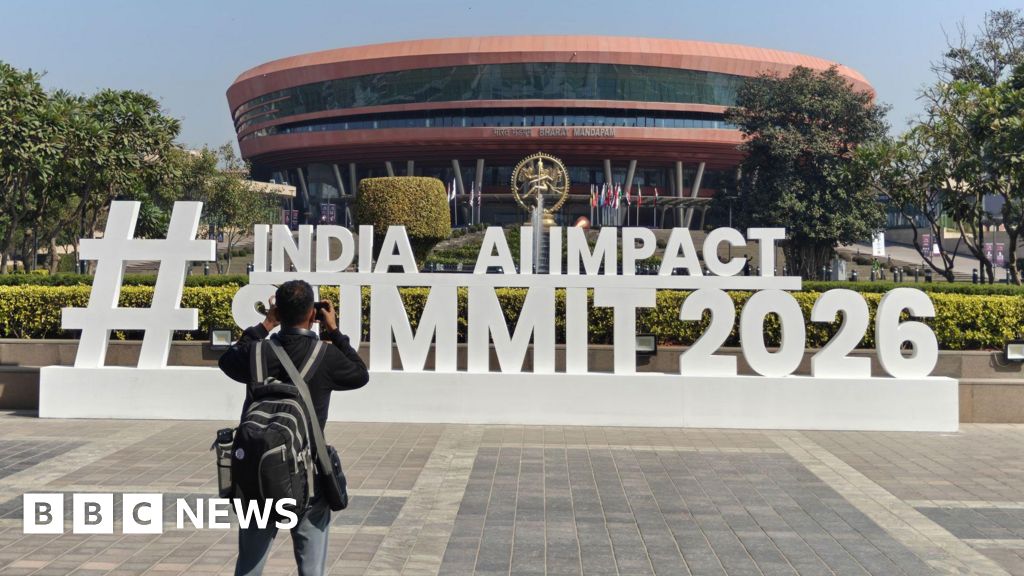Entertainment
Fuel dealers seek govt intervention as artificial diesel shortage hits pumps
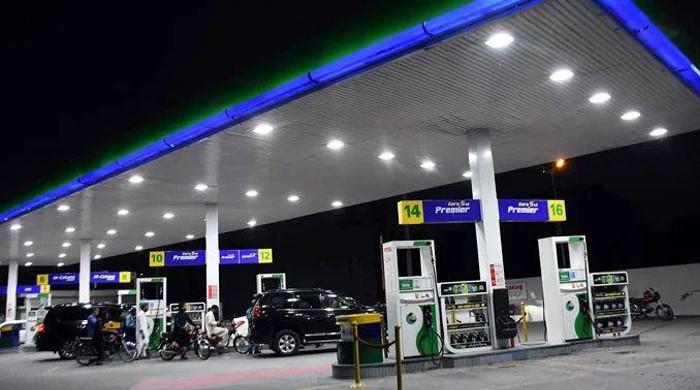
- Dealers say some companies delivering small amounts of diesel.
- Fuel pumps running dry and unable to serve customers: dealers
- Dealers also complain of cancellation of orders after placement.
Fuel traders warn that a manufactured shortage of high-speed diesel is affecting petrol pumps nationwide, calling on the government to act before conditions deteriorate, The News reported on Saturday.
In a letter to the chairman of the Oil and Gas Regulatory Authority (Ogra), the Petrol Pump Dealers Association said oil marketing companies (OMCs) have been limiting diesel supplies for the past week.
According to the dealers, some companies are delivering very small amounts, while others are not supplying fuel at all. Because of this, many pumps are running dry and are unable to serve customers.
Dealers say they place orders that later get cancelled, and fuel trucks are left waiting for hours without being loaded. They believe the shortage is not natural but artificial, created by companies ahead of a possible increase in fuel prices expected later this month.
The association said the supply cuts are so severe that stations are “hardly able to meet the public’s needs”. They have asked Ogra to direct OMCs to provide diesel based on each pump’s regular sales so that stations can operate normally again.
The letter, sent on November 14 by the association’s vice chairman, was also shared with senior officials, including the petroleum minister, the petroleum secretary, the director general oil, and the secretary of the Oil Companies Advisory Council.
It may be noted that a fuel price update is expected at midnight today.
The government jacked up the fuel prices for the outgoing fortnight, effective from November 1, following recommendations from the Oil and Gas Regulatory Authority (OGRA) and the relevant ministries.
The petrol price was increased by Rs2.43 per litre and set at Rs265.45 per litre till tonight, while the price of high-speed diesel (HSD) was also increased by Rs3.02 to Rs278.44 per litre, the Finance Division said in a notification based on the authority’s last review.
Entertainment
Dor Brothers, Tom Cruise, Brad Pitt shake industry
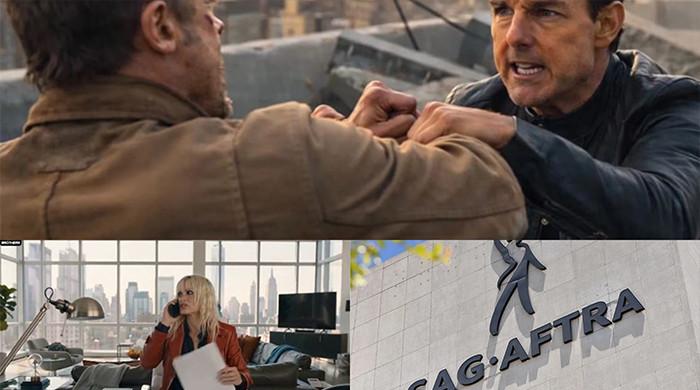
Artificial intelligence has stormed into Hollywood with breathtaking speed and alarming consequences.
What began as experimental novelty has now escalated into a full-blown industry crisis, as viral AI-generated films and hyperrealistic clips of A-list actors force studios, unions, and lawmakers to confront the future of entertainment.
Earlier this week, the Dor Brothers, Berlin-based AI Video Production company, claimed they had produced a “$200,000,000 AI movie in just one day.”
The video, created entirely with generative tools, went viral on X (formerly Twitter), amassing millions of views and sparking debate over whether AI can truly replicate blockbuster filmmaking.
Supporters hailed it as proof of a new era, while skeptics dismissed it as hype.
Regardless, the post underscored how quickly AI is encroaching on traditional production models.
Deepfake Shock: Tom Cruise vs. Brad Pitt in AI combat
If the Dor Brothers’ film was a provocation, the viral AI fight sequence between Tom Cruise and Brad Pitt was a shockwave.
Created with Seedance 2.0, the 15-second clip depicted the two megastars trading blows on a rooftop with uncanny realism.
Variations of the video circulated online, complete with dialogue and camera angles, leaving audiences unsettled.
Screenwriter Rhett Reese (Deadpool & Wolverine) warned bluntly, “It’s likely over for us.”
The clip crystallized Hollywood’s worst fears that AI could convincingly mimic actors without their consent, eroding both creative integrity and livelihoods.
SAG-AFTRA draws line on AI exploitation
In response, SAG-AFTRA has taken a hard line.
The union condemned Seedance 2.0’s use of actors’ likenesses as “blatant infringement” and called for an outright ban on AI creations featuring real movie stars.
It is argued that unauthorized replication of voices and faces undermines performers’ ability to earn a living and strips them of control over their identities.
The guild has worked for several years on AI protections, with demands for strict consent requirements, compensation frameworks and federal safeguards.
Hollywood Divided: Threat or opportunity?
Hollywood is now split between alarm and opportunity.
Unions, screenwriters, and many actors see AI as an existential threat.
They warn of job losses, creative theft and a collapse of artistic value if studios embrace AI without regulation.
Some studios and technologists argue AI can be a powerful tool if used responsibly for previsualization, special effects, or enhancing workflows.
They stress that AI is not yet capable of producing true 4K theatrical-quality films, highlighting its current limitations.
The Road Ahead: 2026 as a defining year for cinema
2026 is shaping up as a pivotal year.
With studios investing billions in AI, unions mobilizing for protection, and viral clips eroding trust, Hollywood faces a defining choice: embrace AI intelligently or risk chaos.
Entertainment
Why Robert Duvall’s ‘napalm’ line in ‘Apocalypse Now’ is so iconic
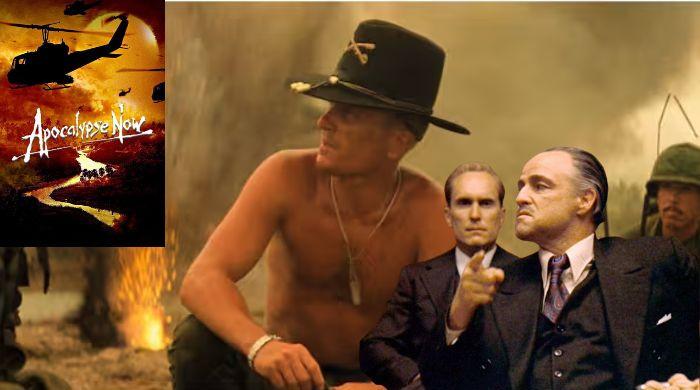
One of the most referenced and iconic dialogues in the history of cinema that truly enjoyed a life of its own is “I love the smell of napalm in the morning.”
These timeless lines were performed by Robert Duvall in Francis Ford Coppola’s 1979 Vietnam War classic Apocalypse Now.
The chilling monologue is what is making buzz on social media again after the demise of the Oscar winner for Tender Mercies, who passed away at his home in Middleburg, Virginia, on Sunday, February 15.
Let’s find out why, decades later, the monologue has become one of the most quoted lines in cinema history.
The line was said by Lieutenant Colonel Bill Kilgore, a daring and eccentric cavalry officer, when he set a helicopter ambush on a Vietnamese village.
Colonel Kilgore calmly reflects on the ashes left after the napalm bombing, finally coming to terms with the fact that it smells like “victory.”
The line is, “Napalm, son. Nothing else in the world smells like that. I love the smell of napalm in the morning. You know, one time we had a hill bombed for twelve hours. When it was all over, I walked up. We didn’t find one of ‘em, not one stinking drink body.
“The smell, you know, the gasoline smell, the whole hill. Smelled like… victory.”
What follows is, “Some day this war’s gonna end.”
It was a quiet introspection of what war takes and steals from human lives.
Why does the line continue to resonate?
The dialogue has taken on a life beyond the film, becoming a symbol for glorifying chaos, dark irony, and battlefield arrogance.
Cultural critics have been referencing it across pop culture, memes, viral trends, and television shows, often using it with a taste of sarcasm to introspect obsession, destruction, or self-indulgence.
Above all, Robert Duvall’s iconic performance in the film, especially in the immortal sequence, has been etched into the memories of cinema lovers, as long as the shadows of war continue to loom over our planet.
Entertainment
Chinese ‘Year of Fire Horse’ to bring luck for Mamdani, challenges for Trump
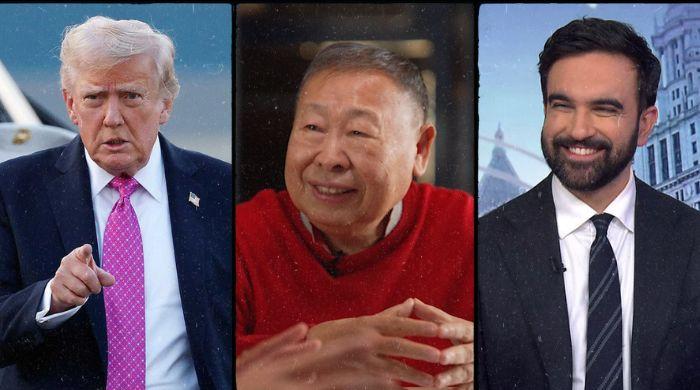
China has welcomed its Lunar New Year with nationwide celebrations of fireworks, lanterns, and festivities.
2026 is the Year of the Fire Horse, which symbolises power and speed.
A feng shui expert Raymond Lo has made predictions on how the new year will be for prominent American personalities, including the United States (U.S.) President Donald Trump, New York Mayor Zohran Mamdani and Hollywood sensation Timothee Chalamet.
For context, a Feng Shui Master is a professional, often rooted in traditional Chinese metaphysics, who interprets and manipulates environmental energy (Qi) to enhance harmony, health, and prosperity in homes and businesses.
In an interview with CNN, Master Lo said, “The horse represents a powerful fire element. So it’s a pure fire year. Fire is very strong and very energetic.”
He added that it will bring protests and anti-government demonstrations in the U.S. that could not be so peaceful, adding, “Fire is not a favourable element for President Trump, so it will stimulate his enemies.”
Master Lo said Trump will likely face fierce opposition and significant obstacles in the year of the fire horse.
The year is predicted to be favourable for New York City Mayor Zohran Mamdani, who was sworn-in last year after winning the election against political heavyweights.
Master Lo said, “Mamdani has a strong metal element in his chart, and fire is a power to metal people. He will gain power. It’s a very favourable year for him.”
The predictions don’t always come true as Master Lo’s prediction about then-President Biden having a good year in 2024 and Trump having a bad year did not come true, as Trump went on to win the 2024 presidential election despite Lo’s forecast.
-

 Business7 days ago
Business7 days agoAye Finance IPO Day 2: GMP Remains Zero; Apply Or Not? Check Price, GMP, Financials, Recommendations
-

 Fashion7 days ago
Fashion7 days agoComment: Tariffs, capacity and timing reshape sourcing decisions
-
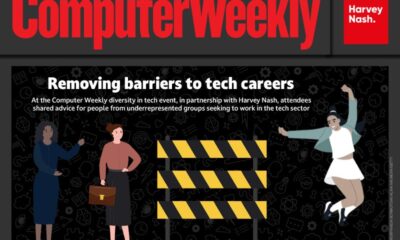
 Tech1 week ago
Tech1 week agoRemoving barriers to tech careers
-

 Entertainment1 week ago
Entertainment1 week ago‘Harry Potter’ star David Thewlis doesn’t want you to ask him THIS question
-

 Fashion7 days ago
Fashion7 days agoADB commits $30 mn to support MSMEs in Philippines
-

 Fashion4 days ago
Fashion4 days ago$10→ $12.10 FOB: The real price of zero-duty apparel
-
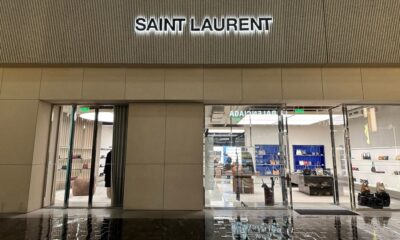
 Fashion7 days ago
Fashion7 days agoSaint Laurent retains top spot as hottest brand in Q4 2025 Lyst Index
-

 Sports7 days ago
Sports7 days agoWinter Olympics opening ceremony host sparks fury for misidentifying Mariah Carey, other blunders



